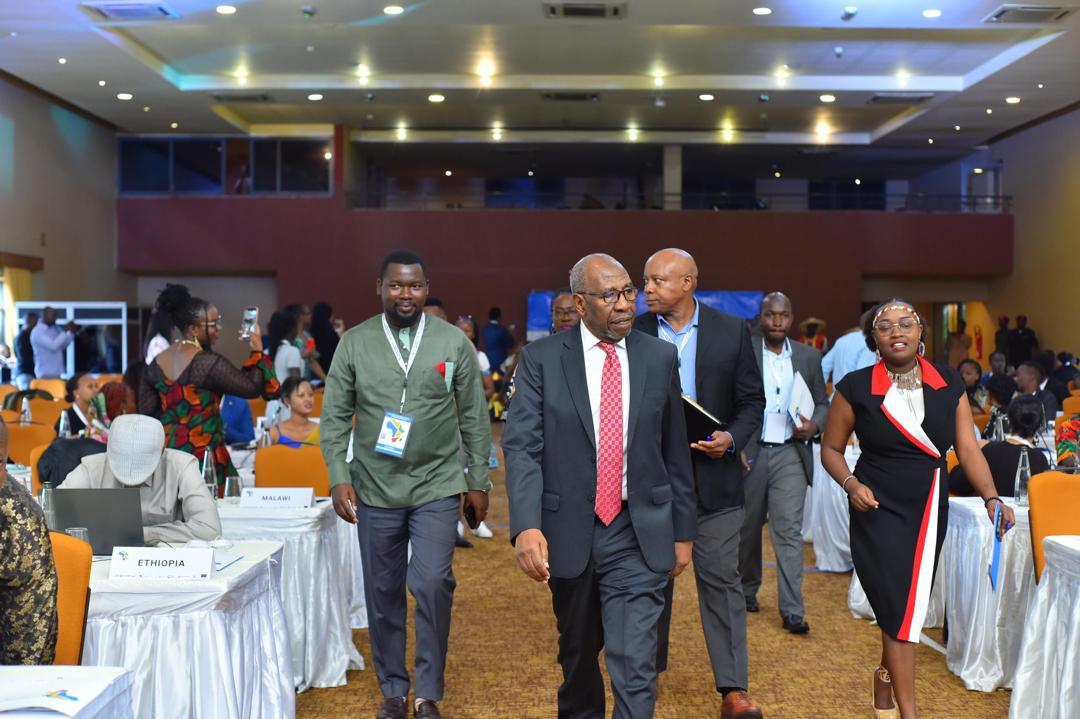Prime
Govt set to repossess Namanve thermal plant

Irene Batebe, new Energy ministry permanent secretary.
What you need to know:
- The country expects to start commercial oil production in early 2025 after investments of between $10b (Shs36 trillion) and $15b (Shs54 trillian) for the required infrastructure.
The Uganda Electricity Generation Company Limited (UEGCL) will next month take over the heavy fuel oil thermal power plant at Namanve a year after the concession of the plant’s operator expired.
The thermal plant, alongside the Tororo-based Electromaxx in Tororo, provide the most expensive electricity that government buys at a unit cost of at $18 cent (about Shs666.04).
The former Energy ministry permanent secretary, Mr Robert Kasande, yesterday described the takeover as “a good thing to plan to switch it on and off whenever we want.”
He made the remarks while handing over to his successor, Ms Irene Batebe.
Mr Kasande was last month reassigned by President Museveni in the same role to the Ministry of Justice and Constitutional Affairs.
His successor, Ms Batebe previously served as commissioner for midstream (pipeline and refinery) in the Energy ministry.
The Namanve thermal power plant was constructed by Jacobsen Electricity Company (Uganda) Ltd, a Norwegian firm, under a concession of build, operate and transfer at a cost of $92m in 2008. The concession expired in August 2020 and officials at the time contemplated its renewal.
In 2019 alone, according to the Electricity Regulatory Authority, government paid for the thermal plant Shs48b, despite the country’s surplus of hydro-power of more than 1,000 megawatts.
Appeal to new leadership
Despite the surplus power, Mr Kasande indicated yesterday that the current ministry’s leadership needs to put a lot of emphasis on the transmission and distribution sides, which are concessioned to Uganda Electricity Transmission Company Ltd and Umeme, respectively.
“For the midterm priorities you are coming to lead a ministry which has three out of the 18 key priorities under the National Development Plan,” Mr Kasande told his successor.
Mr Kasande was appointed to the position in August 2017, replacing Dr Stephen Isabalija who was fired after just 10 months on the job. Mr Kasande, who has spent 33 years in the ministry of Energy, was serving as the acting director of the Petroleum Directorate.
Call for support
Ms Batebe appealed to the ministry’s staff to support her to the deliver on the key mandates, especially the country’s nascent petroleum, which officials say is at the take-off stage.
The country expects to start commercial oil production in early 2025 after investments of between $10b (Shs36 trillion) and $15b (Shs54 trillian) for the required infrastructure.
This includes the East African Crude Oil Pipeline (EACOP) to transport Uganda’s crude oil to Tanga port in Tanzania, and development of the oil fields —Tilenga in Nwoya and Buliisa districts operated by French Total Energies EP, and China’s Cnooc in Hoima and Kikuube districts.
Mr Kasande also revealed that there is a need for government to focus more on local content, including establishment of a local content fund to reinforce local investors to benefit from the mostly capital intensive oil industry.
Since announcement of discovery of commercial oil reserves in 2006, the country raked investments to a tune of Shs11trillion ($3.2b) but a bulk of it went to international contractors, many of whom employed foreign nationals.




